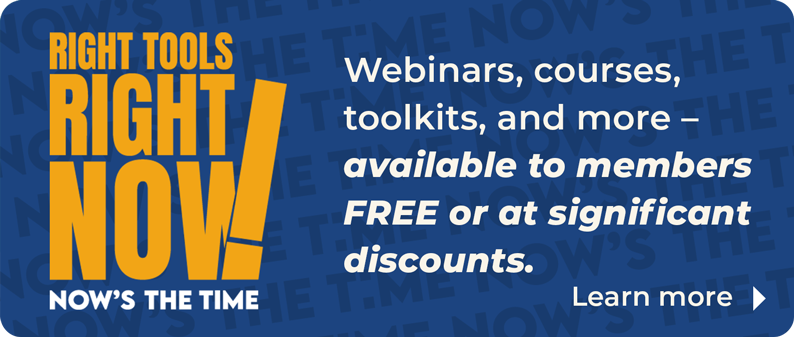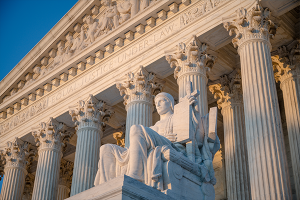On December 16, 2020, the Equal Employment Opportunity Commission (EEOC) published updated guidance on COVID-19 vaccines. In anticipation of the wide distribution of COVID-19 vaccines, associations and brokerages should begin thinking about and crafting COVID-19 vaccination policies, as well as understand how the Americans with Disabilities Act (ADA), Title VII of the Civil Rights Act (Title VII), and other federal, state and local laws may impact the application of COVID-19 vaccination policies to the workforce. Below are some of the key takeaways from the EEOC’s guidance to help organizations formulate a plan to address COVID-19 vaccinations in the workplace.
Takeaways
EMPLOYERS CAN REQUIRE THAT EMPLOYEES RECEIVE THE COVID-19 VACCINE BEFORE RETURNING ONSITE.
The EEOC guidance makes clear that employers may impose mandatory vaccination policies as a condition of employees physically entering the workplace.
EMPLOYERS MAY BE REQUIRED TO MAKE EXCEPTIONS TO A MANDATORY VACCINATION POLICY.
Employers must consider exceptions to a mandatory vaccination policy if an employee’s refusal is based on a disability or a sincerely held religious belief, practice, or observance. The ADA requires that an employer first determine whether the unvaccinated employee poses a “direct threat” to others, and whether that threat can be reduced or eliminated through other measures, such as COVID-19 screenings, social distancing, and personal protective equipment. Employers can only bar an employee from the workplace if it concludes no reasonable accommodation exists that would eliminate or reduce the threat. Even then, an employer must evaluate whether another accommodation, such as remote work, can be provided. Similarly, and absent undue hardship, Title VII requires that employers provide reasonable accommodations to employees who request a religious accommodation to a mandatory COVID-19 vaccination policy.
EMPLOYERS SHOULD REQUIRE EMPLOYEES TO OBTAIN THE VACCINATION OFF-SITE.
While it is permissible for the employer to administer the vaccine, the pre-screening vaccination questions may elicit disability-related information in violation of the Americans with Disabilities Act (ADA). Therefore, it is a best practice for employers to require employees to obtain the vaccine off-site through their own means, such as a pharmacy or physician.
EMPLOYERS CAN REQUIRE EMPLOYEES TO PROVIDE PROOF OF A COVID-19 VACCINATION.
Asking employees to provide proof of vaccination, such as by showing a vaccination card, is permissible and unlikely to elicit disability-related information in violation of the ADA. However, it is a best practice to warn employees not to provide medical information as part of that proof.
EMPLOYERS MUST KEEP ALL EMPLOYEE MEDICAL INFORMATION CONFIDENTIAL.
With limited exception, the ADA requires employers to keep all employee medical information confidential. Employers must store all medical information separately from an employee’s personnel file. This includes not only an employee’s diagnosis or treatment, but also whether an employee has requested a reasonable accommodation. Additionally, the employer should never disclose why an employee is receiving a reasonable accommodation or that an employee is on leave due to COVID-19 or any other medical condition.
EMPLOYERS CANNOT EXCLUDE HIGH-RISK INDIVIDUALS INVOLUNTARILY FROM THE WORKPLACE.
The ADA does not permit employers to exclude employees from the workplace based on an individual’s age, pregnancy, or fact that an individual may be at a higher risk for serious illness due to COVID-19. This is true even when the employer’s actions are motivated by genuine concern for an employee. However, an employer may provide greater flexibility to workers age 65 and older, even if younger workers are not given the same flexibility.
EMPLOYERS CAN REQUIRE EMPLOYEES TO ADHERE TO ADDITIONAL PROTECTIVE MEASURES.
While the Occupational Safety and Health Administration (OSHA) has not yet issued guidance on whether an employer can require the COVID-19 vaccine or must offer the vaccine, existing OSHA guidance requires employers to adopt and maintain an infectious disease response and preparedness plan that incorporates current public health guidance. The EEOC’s guidance reinforces OSHA’s guidance, and makes clear that employers can adopt additional protective measures in the workplace, such as:
- Requiring employees to submit to COVID-19 pre-screening questions and temperature checks as a condition of entering the workplace.
- Barring an employee’s physical presence in the workplace if an employee refuses to submit to a COVID-19 pre-screening or temperature check, but employers should engage in an interactive process with employees who request a reasonable accommodation with respect to such screenings.
- Requiring employees leave the workplace if they become ill with COVID-19 symptoms.
- Requiring an employee to provide a doctor’s note before an employee is permitted to physically return to the workplace after they become ill with COVID-19 symptoms.
- Requiring employees wear personal protective equipment in the workplace, but employers must engage in an interactive process with employees who request a reasonable accommodation based on a disability or sincerely held religious belief, practice or observance.
EMPLOYERS CAN REQUIRE ALL INDIVIDUALS WHO COME ON-SITE TO PROVIDE PROOF OF VACCINATION.
While the EEOC guidance only addresses the employment relationship, employers should be able to require independent contractors to provide proof of vaccination without fear of violating worker classification laws. Be sure that a mandatory vaccination policy is consistently applied based on exposure risk, and not based on the nature of the relationship, and that the requirement is consistently enforced.
EMPLOYERS CAN REQUIRE ATTENDEES AT IN-PERSON EVENTS TO PROVIDE PROOF OF VACCINATION.
Based on the EEOC’s guidance, it is reasonable that organizations could require proof of vaccination from attendees at in-person conferences. However, organizations should consider whether similar offerings can be made available in a virtual setting to those who, due to a disability or sincerely held religious belief, practice or observance, cannot meet the vaccination requirement for in-person attendance.
Next Steps
While the EEOC guidance makes clear that employers can mandate COVID-19 vaccines, there are many factors that employers should consider when deciding whether to make the vaccine mandatory. In addition to the legal implications of a mandatory policy, other factors such as employee hesitation about the vaccine should be considered. Whether an employer starts out with a voluntary or mandatory vaccination policy, employers should develop a communication program that clearly informs employees of the terms of the policy, including information on vaccine supply, payment for the vaccine, timelines for receiving the vaccine, consequences for non-compliance, and other practical issues such as whether employees will be excused from work to get the vaccine. Employers should work closely with human resources and legal counsel to develop a policy, in evaluating accommodation requests to the policy, and before disciplining or terminating any employee for non-compliance with a mandatory vaccine policy.
Keep in mind that guidance and best practices will continue to evolve as the vaccine becomes more widely available, and as other agencies provide additional guidance. Employers should continue to look for the most up-to-date information and guidance by checking the EEOC, Centers for Disease Control and Prevention, and other government agencies and public health authorities’ websites.













